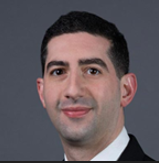Dr Zachary Solomon: The Role of Robotic Assistance in Modern Cardiac Surgery
Dr Zachary Solomon: The Role of Robotic Assistance in Modern Cardiac Surgery
Blog Article

In new ages, person cardiac surgery has skilled incredible breakthroughs, driven by cutting-edge technologies, polished surgical methods, and a deeper understanding of individual cardiac anatomy and pathology. These advances have somewhat improved patient outcomes, reduced recovery occasions, and expanded the options for treating plenty of cardiac conditions. In this article, we'll take a deeper search at some of the very impactful breakthroughs in the area of adult cardiac surgery according to Dr Zachary Solomon Philadelphia.
Minimally Unpleasant Surgery
Traditionally, cardiac surgery expected big incisions, such as a sternotomy (where the chest is exposed by way of a straight incision). But, minimally invasive cardiac operations (MICS) have developed that landscape. Using smaller incisions, endoscopic cameras, and particular instruments, surgeons is now able to conduct complex techniques with less injury to the patient.
Robotic-Assisted Surgery
Robotic-assisted surgery is yet another amazing advancement. Surgeons use automatic techniques to get detail and control that would be impossible with the human give alone. These robots are built with small tools and high-definition 3D cameras, providing unmatched perspective and dexterity.
Transcatheter Aortic Valve Substitute (TAVR)
TAVR has revolutionized the administration of aortic stenosis, especially in patients considered high-risk for open-heart surgery. Throughout a TAVR treatment, a prosthetic device is introduced using a catheter generally through the femoral artery and stationed within the diseased aortic valve.
Advanced Imaging Methods
The progress of imaging modalities has empowered cardiac surgeons with exemplary preoperative and intraoperative visualization capabilities. Systems such as 3D echocardiography, Cardiac MRI, and CT angiography permit accurate planning and execution of medical interventions.
Gene Treatment and Regenerative Medicine
While still in the experimental stage, gene treatment and regenerative medication maintain potential to change cardiac surgery in the future. Scientists are examining methods to correct heart tissue using base cells and gene-editing technologies.
Conclusion
Improvements in adult cardiac surgery where Dr Zachary Solomon is part of have drastically improved how heart diseases are handled, giving patients less intrusive options, quicker healing instances, and greater outcomes. As engineering and medical research continue steadily to advance, the near future supports even more assurance for innovations that might modify the landscape of cardiac care forever as Dr Zachary Solomon would say. Whether through minimally invasive practices, automatic aid, sophisticated imaging, or revolutionary research in gene treatment and regenerative medication, the field of cardiac surgery lies for a continuously developing and increasing trajectory. Report this page